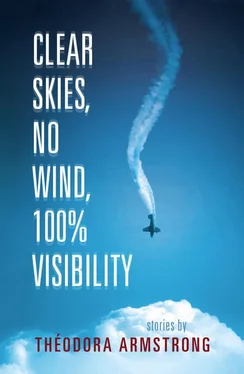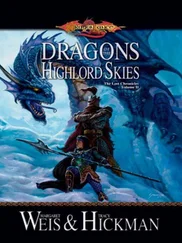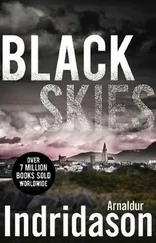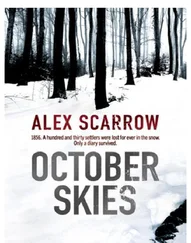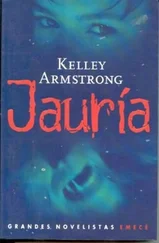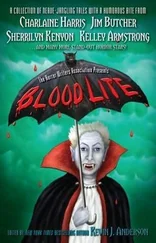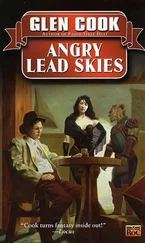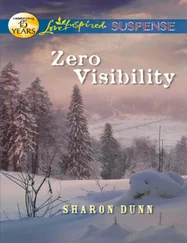“Sure,” Paul says, jumping up and heading out of the room. “I’ll get you a glass.”
I hear him opening cupboards in the kitchen. I hear the hiss of the refrigerator and the crack of ice cubes tumbling into a glass. I hear him pour himself another drink and suddenly I don’t want to be in his house anymore. My toes fiddle with the sand in my shoes. I pull my sneakers off, carefully spilling two piles of sand on the polished wood floor before putting them back on and walking over to the windows. They look out across the distant city lights, where streams of cars cross the bridge and neon signs flicker like stars in another galaxy. Everything is gentle and harmless from here. I place my hands flat on the glass and glide the sliding doors open, stepping out into the night, the perfect lines of the deck and the manicured lawn and clipped hedges. In the distance cars speed along the highway. I walk out onto the lawn and look back at Paul’s house, a cold breeze moving across my face and under my clothes. He’s still in the kitchen, but he’ll be back soon. Most of the windows are lit, but I notice movement in one of the darkened rooms. It’s hard to say, but there may be a child standing there, its small body pressed up against the window, the glass giving its skin an unnatural icy glow. The child stands there like a small statuette and for only a moment I’m frozen.
I WAIT AWHILE ON Marine Drive for the bus, but there are a couple of guys in a car across the street who keep staring at me. It looks like they’re hot-boxing their car, so I start walking. I think about what could happen if I got in the car with them. We’d listen to music and I’d end up doing it with both of them. Or maybe one of them would leave and the other would fall in love with me. He would transfer to my school to be closer to me and we could eat lunch in the alcove every day. Or they’d rape me and leave me in the forest, where no one would ever find me. They’d have to have a funeral with an empty coffin or have the funeral in the forest. At the moment any one of those options would do me fine.
The walk along Marine Drive is long, but I can smell the ocean. I go into a gas station to buy smokes, but the clerk is already looking at me suspiciously so I spare myself the embarrassment of being refused. He keeps staring at my hands and my pockets, so I buy some gum to prove to him I have money. I stick three pieces in my mouth and chew furiously as I walk toward Taylor Way. After the intersection, I veer right, toward the Lions Gate Bridge instead of toward my house. The on-ramp to the bridge curves gently under a glow of orange street lamps. A car swoops past like a bat and speeds away, rap blaring from the speakers. I’ve been over this bridge in cars a thousand times before, but I’ve never walked across it. During the day it’s beautiful, like an elegant, braceleted arm stretching over the inlet, but at night it’s different. The bridge is empty, there’s no steady stream of cars crossing, the birds are sleeping. Walking slowly, I let my hand slide over the cold metal railing. It’s not what I expected, standing out here, no glass and metal to protect me. The wind pulls the air right out of my lungs, whips my hair into a thousand tiny knots that will never be able to be picked out. At the bridge’s midpoint I lean out over the railing to try to see the ocean, but all I see is black. Max would’ve been diving blind. He would’ve never seen the water coming. There’s nothing in my pockets to throw, so I step up on the bottom rail and hork my wad of gum over the side, leaning far over the edge to watch it disappear. I wonder how he fell; I imagine it graceful like the canyon jumpers, the sky brightening around his arrow-straight body, a milky white arc leaving a trail brighter than a jet tail.
“Don’t move, honey.” Behind me stands an older man, his greying hair floating around his head in wisps, the wind making him look like he’s being electrocuted. He’s wearing a construction worker’s orange vest, the reflective lines glowing. “How ’bout if you step away from the side there.”
I glance down at the ocean shifting dark and endless beneath the bridge and try to laugh, but the wind snatches the sound and it comes out like more of a gasp. “I wasn’t going to jump.”
The man inches toward me, smiling carefully like I’m a wild animal, like I may pounce or run scared. He nods as though he’s waiting for me to show him something, but the joke is on him — there’s nothing there. He keeps moving until he is almost right behind me and then he stops. “I’d feel a heck of a lot better if you moved away from the railing a bit.” With one step back I’m pressed against him, his arms wrapped tightly around me.
I can see the red-blue of the police car coming over the crest of the bridge. Someone wraps me in a wool blanket and sets me in the back seat. We drive off the bridge, away from the wind and into the quiet suburbs of North Vancouver. All the homes cry perfect little songs into the night. The radio squawks with calls about kids causing mayhem. The officer is not friendly. He doesn’t try to talk to me. I curl into the corner of the back seat and pull the blanket over my head like a hood.
“I miss my friend.”
The police officer keeps his eyes on the road and I realize I wasn’t speaking out loud.
What I miss is the feeling I had hiding with Kate by the river, our backs pressed into the muddy belly of the cave, curled like small animals, breathing hard, our brains sparking with instinct. I could smell the earth and the rotting fish and Kate’s sweat. All the forest colours were vibrant. I could hear each leaf turn in the breeze and feel the blood pumping in my gums and taste the iron in my mouth. And with Kate holding onto me, neither one of us was afraid. Together we were simple and fearless and alive.
SOME OF THE STORIES in this book were first published as follows: “Whale Stories” in Event , The Journey Prize Stories 20 , and Coming Attractions 10 ; “Fishtail” in The Fiddlehead and Coming Attractions 10 ; “Thanks to Carin” in Prairie Fire Magazine and Coming Attractions 10 ; “Rabbit” in Prairie Fire Magazine . Special thanks to editors Rick Maddocks, Andris Taskans, and Mark Anthony Jarman for their care and attention. I’d also like to express appreciation to the Canada Council for the Arts for their financial assistance.
A hearty thank you to my publisher, Sarah MacLachlan, and the dedicated, energetic people at House of Anansi Press, particularly my gifted editor, Melanie Little, for her invaluable insight, enthusiasm, and warm spirit. Thanks to Peter Norman for meticulous and thoughtful copyedits. Infinite praise to my agent, Marilyn Biderman, for her kindness and her lion heart.
A special recognition to the Department of Creative Writing at the University of British Columbia for their support and commitment, especially Rhea Tregebov, Steven Galloway, Andreas Schroeder, George McWhirter, and Lynne Bowen. I owe endless gratitude to Keith Maillard, who encouraged and inspired me from the beginning, and gave me the confidence, in those early years, to write stories.
Thank you to my parents, Robert Armstrong and Nicole Fraser Armstrong, for everything. Without their unwavering trust this book would not exist. To my sister, Aland, and my brother, Pierre, for their love and solidarity, and to so many others who have offered their support while I worked on this book: the Frasers; the Millikans; the Armstrongs, especially Jean Armstrong; Ria Voros; Anosh Irani; Mireille Lebel; Daniel Dubiecki; and Lara Alameddine. Merci, Mémère, pour toutes vos histoires d’autrefois.
“The Spider in the Jar” was inspired by a story recounted by my father and my uncle, Ed Armstrong. “Clear Skies, No Wind, 100% Visibility” could not have been written without the meaningful and extensive contributions of Andrew Graham. All the characters in this book are fictitious; any resemblance to real people is purely coincidental. Also, my deepest apologies to those I never asked for permission.
Читать дальше
